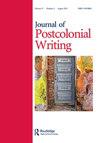A conversation with Leila Aboulela
IF 0.4
3区 文学
0 LITERATURE
引用次数: 0
Abstract
ABSTRACT This conversation with Leila Aboulela is shaped primarily by an interest in her work’s position in the literary marketplace, especially in the UK. It explores Aboulela’s considerable success as a Muslim writer whose fictional worlds are infused with Islam, and asks what this might tell us about the place of faith within the marketplace. The discussion ranges from the author’s journey to publication through the roles played by editors and designers in the production of her fiction to the marketing and reception of her work, also exploring the question of whether and how to translate faith to a secular readership. Mindful of shifts in the reception of writers of colour, including Muslim-heritage writers, through Aboulela’s long career, it concludes with a consideration of a new generation of writers whose work does not shy away from Islamic perspectives, suggesting an openness to unfamiliar world views among readers and some publishers.与Leila Aboulela的对话
这次与蕾拉·阿布拉的对话主要是出于对她的作品在文学市场,尤其是在英国的地位的兴趣。这本书探讨了阿布拉作为一个穆斯林作家的巨大成功,他的小说世界融入了伊斯兰教,并探讨了这可能告诉我们的关于信仰在市场中的地位的问题。讨论范围从作者的出版之旅,到编辑和设计师在小说创作中所扮演的角色,再到作品的营销和接受,还探讨了是否以及如何将信仰转化为世俗读者的问题。考虑到在阿布拉漫长的写作生涯中,人们对有色人种作家(包括穆斯林传统作家)的接受程度发生了变化,本书最后对新一代作家进行了思考,他们的作品不回避伊斯兰观点,这表明读者和一些出版商对陌生的世界观持开放态度。
本文章由计算机程序翻译,如有差异,请以英文原文为准。
求助全文
约1分钟内获得全文
求助全文
来源期刊

Journal of Postcolonial Writing
LITERATURE-
CiteScore
0.80
自引率
0.00%
发文量
73
期刊介绍:
The Journal of Postcolonial Writing is an academic journal devoted to the study of literary and cultural texts produced in various postcolonial locations around the world. It explores the interface between postcolonial writing, postcolonial and related critical theories, and the economic, political and cultural forces that shape contemporary global developments. In addition to criticism focused on literary fiction, drama and poetry, we publish theoretically-informed articles on a variety of genres and media, including film, performance and other cultural practices, which address issues of relevance to postcolonial studies. In particular we seek to promote diasporic voices, as well as creative and critical texts from various national or global margins.
 求助内容:
求助内容: 应助结果提醒方式:
应助结果提醒方式:


